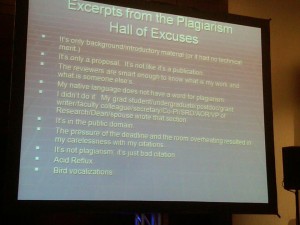Readers who have been with us for the long haul may remember we used to collect a catalog of our favorite euphemisms for plagiarism. That list died with the demise of Lab Times, for which we used to write a regular column (although we did write this piece a bit later) – but the magazine’s passing did not mark the end of journals that speak with mealy mouths.
The latest such euphemism to catch our eye comes from the Journal of STEPS for Humanities and Social Sciences, which in 2022 published a piece by a pair of authors in Iraq about trauma fiction.
“Trauma Reverberations: A Study of Selected Novels,” appeared in 2022, and was written by Intisar Rashid Khaleel and Raed Idrees Mahmood, both of Tikrit University.
According to the retraction notice:
Continue reading Copy and euphemize: When ‘an honor mistake’ means plagiarism







